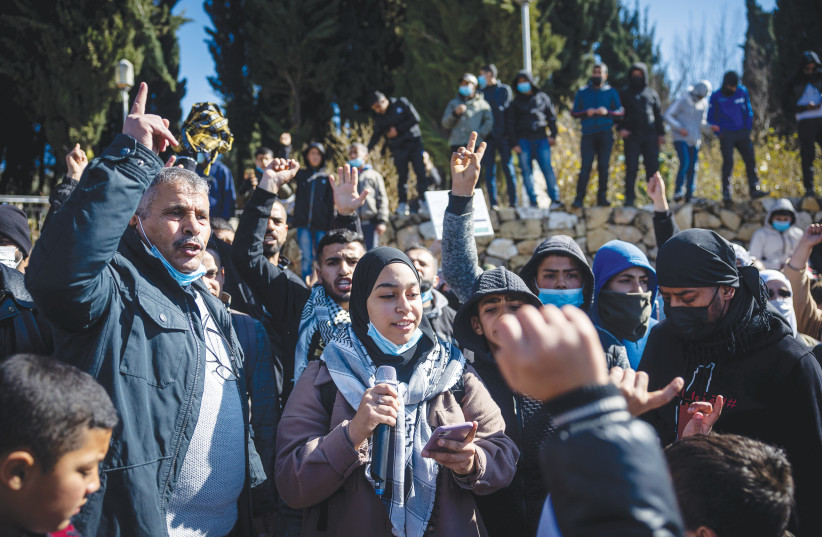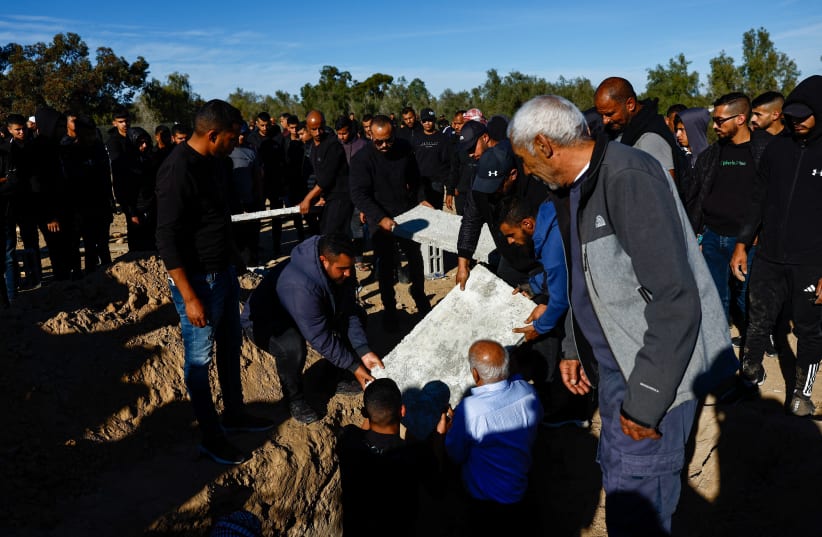In the early morning hours of October 7, Wahid Al-Hazeel from Rahat was sitting in his house with some of his family members. Suddenly, sirens started going off, followed by a barrage of rockets.
Soon enough, videos of gunmen breaking into Israeli towns began circulating on his social media accounts, and then another barrage, this time of a different nature, arrived in the form of messages by friends and neighbors looking for family members who were working that morning on kibbutzim bordering Gaza.
Al-Hazeel, a former major in the IDF and an ex-commander of its Bedouin brigade who the Israeli public came to know in 2008 after he thwarted a Hamas terrorist attack involving three car bombs in Kibbutz Kerem Shalom, quickly responded by setting up a war room dedicated to locating and assisting Bedouin citizens in the midst of all the confusion and chaos.
“At first, we thought like everyone that this would be a short event, but as the hours passed, we began to get a sense of the scale and numbers of those who were either wounded, missing, murdered, or kidnapped.”
How many Israeli Bedouins were killed on October 7?
Twenty-one Bedouin Israelis were murdered in the Hamas massacre of October 7, in addition to five Arab Israelis from the North. Seven of the Bedouin causalities – a woman and six children – were killed by a rocket fired by Hamas, which landed in their home not far from Kseifeh in the Negev desert, and the rest were murdered from zero distance during Hamas’s lethal raid on Israeli towns and at the Nova festival in Re’im.


Additionally, seven Bedouin Israelis were kidnapped by Hamas terrorists, with five remaining there still, after siblings Aisha (17) and Bilal (18) Alziadana were released in the last exchange deal in December. One of those still held by Hamas is Hisham Al-Sayed, who was kidnapped almost nine years ago by the terrorist group.
The war room set up by Al-Hazeel on October 7 soon evolved into an initiative he named The Civil Forum for Those Harmed among the Negev Bedouins. The forum aims to provide aid to the bereaved families, as well as families of the kidnapped, in various fields: from material help to families who were left without a main breadwinner, to psychological aid for children, and even fun activities to help cope with the harsh experiences and losses. They do this along with the Resilience Center for the Bedouin Community, located in Rahat, “though we physically reach any family anywhere needed,” Al-Hazeel said.
“We try to hug and stabilize the families and create educational, social, and even economic programs for the affected. We treat between 100-150 families with different levels of needs. It’s all very new for the Bedouin community in Israel,” he said, referring to the well-known Jewish Israeli existential condition of grief and bereavement as a result of terrorist attacks.
Al-Hazeel also said he aims to build a memorial and form yearly ceremonies in honor of the fallen and the heroes from the Bedouin society in Israel, but what is missing now is funding. “We have yet to find a clear address on a governmental level. But for now, the Joint and the Diaspora Affairs Ministry, headed by Amichai Chikli, are chipping in, which is very much appreciated.”
Another challenge facing the Bedouin community is the issue of safe-proofing houses or installing portable safe room units made of concrete. Government data shows that the Bedouin society is at least 11,000 units short, an undoubtedly costly matter.
However, according to Al-Hazeel, the government is working these days on a plan that will eventually empower and train Bedouin communities to produce these units themselves.
“The Bedouin and Jewish societies in Israel have different cultural codes which make our challenges and needed treatment measures different from the ones Jewish society faces,” adds Al-Hazeel.
“For instance, the issue of trauma and psychological assistance is still widely stigmatized, and many parents don’t take their children to get examined out of this fear, which means that we, in turn, can’t know sometimes who needs help in this area. There’s also the problem of violence in the Arab sector, with which we must deal on a different level. We need to help our youth turn away from the path of radicalization.”
How do you think that this can be achieved?
“I believe that it all starts with national service. It must be legislated as mandatory for all 18-year-olds in Israel, regardless of creed or ethnicity. Of course, not everyone is fit to join the IDF, but there are plenty of other choices, like volunteering with Magen David Adom, the National Fire and Rescue Authority, communal police, and more. National service, employment, mental health therapy – all of these can be of great help in coping with our challenges as a society.”
“Our society as a whole disavows Hamas and views them as a group which does not represent Islam in any way and which harms the very fabric of relations between Jews and Arabs,” He stressed.
“The Jewish and Bedouin societies in Israel are partners in life and destiny. Somewhere between 2,000-2,500 Bedouins work in agriculture in Jewish towns. Success in handling the challenges of the Bedouin community will also project as a success for the Jewish community, and of Israel as a whole. Despite all the hardships and challenges, I believe that as a society, we will be able to overcome them together.”
